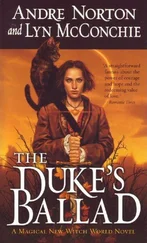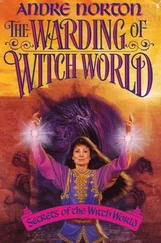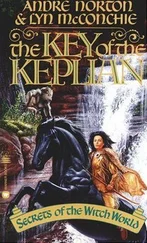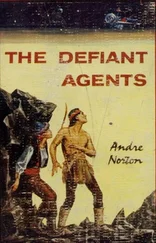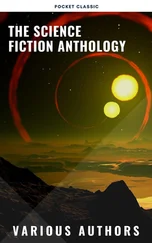Now I know why Captain Hannah drinks rhial in the morning.
So do I.
License to Steal, by Louis Newman
The history of man becomes fearfully and wonderfully confusing with the advent of interstellar travel. Of special interest to the legally inclined student is the famous Skrrgck Affair, which began before the Galactic Tribunal with the case of Citizens vs. Skrrgck .
The case, and the opinion of the Court, may be summarized as follows:
Skrrgck, a native of Sknnbt (Altair IV), where theft is honorable, sanctioned by law and custom, immigrated to Earth (Sol III) where theft is contrary to both law and custom.
While residing in Chicago, a city in a political subdivision known as the State of Illinois, part of the United States of America, one of the ancient nation-states of Earth, he overheard his landlady use the phrase “A license to steal,” a common colloquialism in the area, which refers to any special privilege.
Skrrgck, relying on said document, committed theft, was apprehended, tried and convicted. On direct appeal allowed to the Galactic Tribunal, the Court held:
(1) All persons are required to know and obey the law of the jurisdiction in which they reside.
(2) Public officials must refrain from misrepresenting to strangers the law of the jurisdiction.
(3) Where, as here, a public official is guilty of such misrepresentation, the requirement of knowledge no longer applies.
(4) Where, as here, it is shown by uncontradicted evidence that a defendant is law-abiding and willing to comply with the standards of his place of residence, misrepresentation of law by public officials may amount to entrapment.
(5) The Doctrine of Entrapment bars the State of Illinois from prosecuting this defendant.
(6) The magnitude of the crime is unimportant compared with the principle involved, and the fact that the defendant’s unusual training on Sknnbt enabled him to steal a large building in Chicago, known as the Merchandise Mart, is of no significance.
(7) The defendant, however, was civilly liable for the return of the building, and its occupants, or their value, even if he had to steal to get it, provided, however, that he stole only on and from a planet where theft was legal.
The Skrrgck case was by no means concluded by the decision of the Galactic Tribunal, but continued to reverberate down the years, a field day for lawyers, and “a lesson to all in the complexities of modern intergalactic law and society,” said Winston, Harold C, Herman Prof, of Legal History, Harvard.
Though freed on the criminal charge of theft, Skrrgck still faced some 20,000 charges of kidnapping, plus the civil liability imposed upon him by the ruling of the Court.
The kidnapping charges were temporarily held in abeyance. Not that the abductions were not considered outrageous, but it was quickly realized by all concerned that if Skrrgck were constantly involved in lengthy and expensive defenses to criminal prosecutions, there would be no chance at all of obtaining any restitution from him. First things first, and with Terrans that rarely means justice.
Skrrgck offered to pay over the money he had received for the building and its occupants, but that was unacceptable to the Terrans, for what they really wanted, with that exaggerated fervor typical of them, provided it agrees with their financial interests, was the return of the original articles. Not only were the people wanted back, but the building itself had a special significance.
Its full title was “The New Merchandise Mart” and it had been built in the exact style of the original and on the exact spot on the south side of the Chicago River where the original had stood prior to its destruction in the Sack of Chicago. It was more than just a large commercial structure to the Terrans. It was also a symbol of Terra’s unusually quick recovery from its Empire Chaos into its present position of leadership within the Galactic Union. The Terrans wanted that building back.
So Skrrgck, an obliging fellow at heart, tried first to get it back, but this proved impossible, for he had sold the building to the Aldebaranian Confederacy for use in its annual “prosperity fiesta.”
The dominant culture of the Aldebaranian system is a descendant of the “conspicuous destruction” or “potlatch” type, in which articles of value are destroyed to prove the wealth and power of the destroyers. It was customary once every Aldebaranian year—about six Terran—for the Aldebaranian government to sponsor a token celebration of this destructive sort, and it had purchased the Merchandise Mart from Skrrgck as part of its special celebration marking the first thousand years of the Confederacy.
Consequently, the building, along with everything else, was totally destroyed in the “bonfire” that consumed the entire fourth planet from the main Aldebaranian sun.
Nor was Skrrgck able to arrange the return to Terra of the occupants of the building, some 20,000 in number, because he had sold them as slaves to the Boötean League.
It is commonly thought slavery is forbidden throughout the Galaxy by the terms of Article 19 of the Galactic Compact, but such is not the case. What is actually forbidden is “involuntary servitude” and this situation proved the significance of that distinction. In the case of Sol v. Boötes , the Galactic Tribunal held that Terra had no right to force the “slaves” to give up their slavery and return to Terra if they did not wish to. And, quite naturally, none of them wished to.
It will be remembered that the Boöteans, a singularly handsome and good-natured people, were in imminent danger of racial extinction due to the disastrous effects of a strange nucleonic storm which had passed through their system in 1622. The physiological details of the “Boötean Effect,” as it has been called, was to render every Boötean sterile in relation to every other Boötean, while leaving each Boötean normally capable of reproduction, provided one of the partners in the union had not been subjected to the nucleonic storm.
Faced with this situation, the Boöteans immediately took steps to encourage widespread immigration by other humanoid races, chiefly Terrans, for it was Terrans who had originally colonized Boötes and it was therefore known that interbreeding was possible.
But the Boöteans were largely unsuccessful in their immigration policy. Terra was peaceful and prosperous, and the Boöteans, being poor advertisers, were unable to convince more than a handful to leave the relative comforts of home for the far-off Boötean system where, almost all were sure, some horrible fate lay behind the Boöteans’ honeyed words. So when Skrrgck showed up with some 20,000 Terrans, the Boöteans, in desperation, agreed to purchase them in the hope of avoiding the “involuntary servitude” prohibition of Article 19 by making them like it.
In this, they were spectacularly successful. The “slaves” were treated to the utmost luxury and every effort was made to satisfy any reasonable wish. Their “duties” consisted entirely of “keeping company” with the singularly attractive Boöteans.
Under these circumstances it is, perhaps, hardly surprising that out of the 20,101 occupants, all but 332 flatly refused to return to Terra.
The 332 who did wish to return, most of whom were borderline psychotics, were shipped home, and Boötes sued Skrrgck for their purchase price, but was turned down by the Galactic Quadrant Court on the theory of, basically, Caveat Emptor—let the buyer beware.
The Court in Sol v. Boötes had held that although adults could not be required to return to Terra, minors under the age of 31 could be, and an additional 569 were returned under this ruling, to the vociferous disgust of the post-puberty members of that group. Since there was apparently some question of certain misrepresentations by Skrrgck as to the ages or family affiliations of some members of this minor group, he agreed to an out-of-court settlement of Boötes’ claim for their purchase price, thus depriving the legal profession of further clarification of the rights of two “good faith” dealers in this peculiar sort of transaction.
Читать дальше

